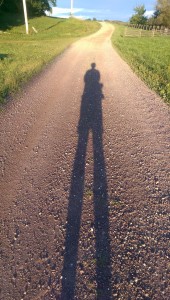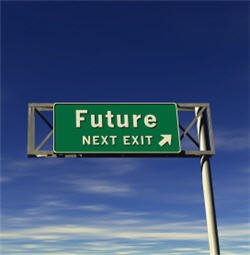Big Fish Blog
March 1st, 2017

In this day and age, when the whole world seems to be operating in some type of Bizarro alternate universe, where up is down and truth is fiction and fiction is passed off as truth, and stress rules, wouldn’t it be nice if all that time we spend in meetings was less stressful instead of adding to the stress?
Where your voice is heard?
Not feeling silenced!
Especially if you’ve taken on the noble task of organizing your community to bring some sanity back to our political reality, and you’re trying to run a meeting, or be part of a meeting, where some people need to ‘dial-in’ because they’re busy juggling getting babies to bed while working to save the planet.
Or, you just want your work life to be more balanced and spending time in pointless meetings has got you down.
Either way, let’s address what started as a difficult form of communication to begin with. Assembling a bunch of people together in a room to get stuff done. And then became even more difficult as we removed some of the people and added cell phones, speaker phones, WebEx, Facetime, Skype, you-name-it to the mix.
Let’s make it saner, shall we…
Let’s start by addressing the reality that Virtual meetings are in fact a different breed of animal than regular meetings. As such, they require (I’d even say DEMAND) the introduction and adherence to a few basic, but different, civil rights. Here are 3 steps to get you started…
- Assign the role of Virtual Meeting Facilitator (VMF) to a different person than the meeting organizer/chair/leader/whatever-you-want-to-call the head honcho. This person is responsible for setting up and making sure that EVERYONE (even if they think they’ll be there in person, just in case they find themselves sitting in the airport waiting area to board their last-minute flight to Zimbabwe) has the links, call-in #’s, passwords, access codes, etc. needed to join the meeting virtually. Also, if, no excuse me, WHEN there is a problem with accessing the technology, the VMF is the one who gets the call. NOT the person trying to run the meeting. Why should everyone in the room (and those that have joined the meeting successfully) have to suffer when one person hasn’t figured out their technology?
- Add a few Virtual Meeting Operating Agreements (VMOA) to your regular Operating Agreement’s (OA). If one of your OA’s is Be Respectful (my personal favorite and my only non-negotiable if I’m facilitating) add under that agreement list that those calling in will use the Mute Button when they’re not speaking (so we don’t all have to listen to the clicking of their keyboard while they catch up on their email). Another one under that same banner would be to make a point of asking the call-ins their opinion from time-to-time since it’s hard to know if they’re raising their hands or needing to say something through their body language. Another good VMOA that you might add would be for those on the phone – please remember to say your name before speaking so everyone knows who you are; or, if you want to engage with someone who is on the phone, thread them into the conversation by starting with their name before asking them your question. Last, but not least, as a facilitator, use round-robin instead of popcorn style when someone asks a question of the team. That way there isn’t as much dead air while folks politely wait for someone else to offer their opinion.
- Agree as a team to keep looking for new ways to improve on the VM experience. For example, going from conference calls (audio only) to a full A/V platform (Skype, Facetime, WebEx, etc.) allows all of you to ‘see’ each other rather than just the folks in the room. Have your VMF be on the lookout for the platform that’s right for you (new ones are popping up by the minute). Have your VMF be responsible for managing the crossover to any new platform, ensuring that the transition is as smooth as possible. Make sure that before you start the new platform all those ‘dialing in’ have experimented with the new tech and know how to work it. Written instructions, w/ access codes, url’s and passwords all on one neat sheet. You get my drift here…
These three steps are meant to be in addition to regular, good meeting practices that deserve to be an integral part of how your meetings are run. For pointers on how to do just that, click here. And/or, take this quick quiz on how efficient (or maddening) your meetings are currently operating. A great metric to start with!
December 11th, 2016
Disappointment, loss, grief, and, shock (DLGS). That was my November. Especially on the morning of 11/9, which was especially shocking, as shocking in fact as the events of 9/11 (a numerologist would have a great time with that one).
For me, all of this DLGS on 11/9 was about to be fully sandwiched by two other events, full of disappointment, loss and grief. First, the somewhat sudden passing of my 42-year old godson, on Halloween. I had just been in touch with his mom, one of my oldest, dearest friends, as she was helping him move into hospice, and I was planning on arriving the next day to see them. Then, within a few hours of getting settled at hospice, he was gone.
The sandwich on the other side was a memorial service on 11/15 for a long-standing coaching client from one of my all-time favorite teams. He was an incredible inventor (including the Craisin). A great story teller. A wonderful family man. Only 59 years old. Fine one minute. Gone the next.
The silver lining, right in the middle of all this loss and grief, was a delightful dinner party, hosted by my old friend Katie, who had been planning on having a dozen of us over to celebrate the election results. Which as you may have guessed turned into a somber, soul-searching evening. No celebrating for us.
Yet, our hostess had the wisdom, and the will, to lead us on a process of active listening, and deep sharing. Each of the dinner guests took turns first introducing ourselves and explaining our connection to our host & hostess. Then, at the dinner table, Katie asked us to share how we were feeling, what we were thinking. With rapt intent, we listened as each person made their personal accounting of how deeply troubled and concerned we were by what had just happened, and what may yet come to pass – post-election, mid-shock, still stunned.
Having that unexpectedly yet wonderfully intimate, deeply personal (yet in some ways universal) description of where each person was, right at this exact moment in time, had me feeling better already. Uplifted beyond belief. Just knowing that others were in a similar place, and hearing where they might go from here, brought a ray of hope and possibility.
I was particularly struck by our host’s description of how he felt like he has been living in a bubble. Actually, a bubble within a bubble. Living on an idyllic, socially responsible, working farm (first bubble), located in the State of VT (bigger bubble; Bernie’s bubble).
The whole experience left me thinking of David Whyte’s missive on Disappointment:
The measure of our courage is the measure of our willingness to embrace disappointment, to turn towards it rather than away, the understanding that every real conversation of life involves having our hearts broken somewhere along the way and that there is no sincere path we can follow where we will not be fully and immeasurably let down and brought to earth, and where what initially looks like a betrayal, eventually puts real ground under our feet.
The great question in disappointment is whether we allow it to bring us to ground, to a firmer sense of our self, a surer sense of our world, and what is good and possible for us in that world, or whether we experience it only as a wound that makes us retreat from further participation.
Disappointment is a friend to transformation, a call to both accuracy and generosity in the assessment of our self and others, a test of sincerity and a catalyst of resilience. Disappointment is just the initial meeting with the frontier of an evolving life, an invitation to reality, which we expected to be one particular way and turns out to be another, often something more difficult, more overwhelming and strangely, in the end, more rewarding.
More rewarding if we each commit to behaving as Leaders. Step out of our bubbles. Better yet, burst out of our bubbles. No more sheep. No more checking out, letting others lead, or just waiting for the world to change (as John Mayer sang once). Time to step up. Engage openly, honestly, compassionately with others. Even if, especially if, they don’t come from our old, safe, self-replicating bubble. 
Lead on my friends!
October 10th, 2016

As a young boy my mother would take me to temple on the High Holy days. She would admonish me to sit still, reflect on where I had messed up during the previous year and make amends so that I could start the New Year with a clean slate. At the time, I remember thinking that this all sounded a bit kooky. Transgress all year, go to shul for a few days to make amends, then go out and misbehave all over again?!?
Which of course is exactly what I did.
It’s only as an adult that I finally started to put together the value of deep reflection, heartfelt atonement and commitment to doing better. I am just now beginning to understand and appreciate the incredible impact and karmic reverberations of reflection and repentance.
In addition to avoiding the repetition of past mistakes, there’s much to be said for going one step further, such as practicing random acts of kindness and beauty. Or not so random.
Maybe we can find a way to reset our Snap Judgement Meter. Breathe in and breathe out. Slow down enough to be able to meet people where they are as opposed to where we think they should be. Almost always it takes a willingness to look compassionately at whatever might be going on for others at any moment in time and accept them for who and where they are. Here. Now. Without judgement.
It seems like many of my coaching clients and their teams experience a similar dissonance in the workplace; quick on the draw to judge others and themselves for that matter. All this does is lead to poor communication, challenging work flow and disappointing results. The solution may not be as simple as meditating or mindfulness practices, but it certainly can’t hurt. Almost every day we see new evidence of the effectiveness of a daily practice. Just this week, in the online New York Times, I discovered this whole section devoted to How to Meditate and why it’s so helpful and healthy. Sounds True is a wonderful resource worth checking out for their Mindfulness Daily program (amongst other great offerings). There’s always the Understanding Ourselves page on my site (scroll down towards the bottom) where you’ll find great articles on meditation and mindfulness, along with some good readings on Communication and Leadership (further up the page, Sections listed alphabetically).
Even if you’re not celebrating the Jewish New Year, the fall is still an opportune time to put these practices of reflection and mindfulness to the top of your to-do list. The change of seasons, the abundance of the fall harvest and the age-old time for ‘back-to-school’ seem ripe with possibilities.
What do you do to slow down and reset? Any practices you’d like to share? I’d love to hear from you.
Here’s to full and bountiful reflection!
Peter
July 22nd, 2016

Do you ever find yourself in a sea of change? This past year has brought with it lots of changes – at work, at home and around the world. Not unlike the seasonal shift to Summer I find myself slowing down, more languid in my movement and my thoughts. Yet, I am also full of energy to fuel the changes still to come.
At the same time, I find myself more acutely aware of who I am and how I’m showing up.
I had the incredible opportunity last month to receive the kind of feedback I encourage all of my coaching clients to obtain – through a 360. It wasn’t my first 360 but it certainly got my attention in ways no other broad-based feedback has. Maybe it’s because I just turned 65.
Maybe it’s because I have a wonderful coach, Kirsten Olson, to help me process it all (coaches benefit from coaches too). Maybe it’s because it’s a new (to me) kind of 360 – The Leadership Circle Profile. I love this instrument! It presents as a single, comprehensive view of my creative competencies (above the horizon) mirroring (or not) my reactive tendencies (below the horizon). Kind of like a scientific mashup of my two favorite 360 instruments, Korn/Ferry’s Voices 360 with Tracom’s Social Styles and Versatility; all in one, neat visual.
My big take-away from all that feedback was that it’s time for me to be even more of who I am than I’ve allowed in the past. I bet you’re wondering, “what does that mean exactly?”
While I’m not sure exactly what that means, I know part of it includes allowing myself to be more fully participatory – not to shy away from stating my opinion when appropriate. To be more of a Driver in the conversation, less Amiable. Sharing more of what I feel to be true, even if it ruffles a few feathers. Time for some transformational stepping up to the extroverted plate.
And hey! It’s summer. No better time to plant my feet firmly on the ground, and get ready to swing for the bleachers.
See you on the field.
Let’s play ball!
March 9th, 2016
You must be logged in to view this post.
September 28th, 2015
My last post, titled “Looking Forward” was focused on the work we do when we’re in the planning stages of our life, whether it’s our own personal development or the kind of strategic planning we do as an organization or a team. For some reason fall feels like a good time to look back.

What I see, from this vantage point, is you. You are one of a number of very committed, talented, articulate and caring leaders. You come from all kinds of diverse industries – fashion, tech, CPG, health care, to name just a few – and you represent a range of ages, from 20 something millennials to 60+ year old boomers. You’ve held all kinds of jobs, the good, the bad and the ugly.
A few weeks ago I found myself on a radio panel on the show Vermont Edition, with Jane Lindholm, discussing exactly that – Why We Hate/Love Our Jobs. My fellow panelist, Renee Beaupre-White, director of career services at Castleton University, had some great advice for those just starting out in their careers. Take risks. Don’t spend all of your energy looking for your ideal job. Try things out. You never know where that might lead.
I didn’t have a chance to say so on the air, but I’d like to offer the same advice to all of you more experienced, well-worn, been-there-done-that worker bees. Even if you’re a senior leader, in fact, especially if you’re a senior leader, be willing to look at other ways of doing things, other ways of looking back at what’s worked with your team/company and ways to do things differently. A way to look back to learn more about yourself and your team. To look at things from a different perspective, take a more positive approach, reinvent your problem solving process.
This month also coincides with the Jewish holiday, Yom Kippur, known as the Day of Atonement. A day to give thanks, and praise, and to humble oneself. A good practice for every leader, no matter your faith, no matter the time of year.
Life’s short. Clear eyes, strong hearts, can’t lose.
June 26th, 2015

Wow! Do you ever feel like life is moving so quickly that there’s rarely time to stop, look around, much less look forward? As you know, part of my work as an OD consultant is help companies large and small – sometimes just individual entrepreneurs – plan for their futures, both strategically and tactically. It just hit me that I hadn’t ever done the same thing for myself; not for Cole Consulting, not for Peter Cole.
So I did.
Not in the tired old way, using the classic SWOT (Strengths, Weaknesses, Opportunities, Threats) to get started, but in the way I’ve come to appreciate as a more affirmative, results-oriented approach: the SOAR method.
SOAR takes the positive half of the SWOT, omits the negative, and brilliantly adds Aspirations and Results; providing both an inspirational element along with a very practical, tactical Results focused component. This fits perfectly with some of the other work I’ve been personally inspired by recently in the field of Positive Psychology. Check out Dr. Maria Sirois’ site, a colleague of mine, for some inspiration of you own.
I have had the good fortune to facilitate some very meaningful, powerful, insightful and productive strategic planning sessions with a number of organizations and teams. During the past few years I’ve been struck by how different it’s been to use the SOAR process. I recently led a team of about a dozen scientists through their SOAR and came away in awe of how creative and synergistically innovative their planning process was. What historically would have taken two to three days to achieve, they knocked out in less than a day. What was even more impressive was the fact that there was no ‘afternoon meeting fatigue’. No wondering how it might all fit together. Their energy was infectious, their commitment contagious, their synergies inspiring. The team’s manager wrote us afterwards… “Thank you so much for the excellent Strategy session yesterday with the team. It was a very productive and fun meeting! I am so pleased the whole team engaged, participated, and drafted excellent action plans.” It’s not often that we get to hear “meeting” and “fun” in the same sentence.
When I completed the SOAR process for myself I had the most amazing epiphany! I could clearly see how elements in each of my four quadrants connected to one another. Connect the dots! Certain Strengths led directly to definite Opportunities, which then connected to a few of my more meaningful Aspirations, leading right to a few very specific Results. My path forward, clearly spelled out.
Be forewarned… one of my results was to write more!
If you’d like to know more about SOAR and/or need a little help in putting the process in place, drop me a line or give me a call. I am happy to help – positively!
March 13th, 2015

My mother, Julie, may she rest in peace, was an avid gardener. She managed to get through the relatively long, hard winters of the NY metropolitan area not by flying south to Florida or other warm climes as so many of her friends did, but rather by sorting through seed catalogs and researching perennials to add to her flower beds. And reflecting on what she’s going to let go of to make room for the new.
She was accused of wearing rose colored glasses, forever seeing the positive and the beautiful, ignoring the worst in people, sometimes at the risk of avoiding what appeared to others as the obvious, looming misfortune. And yet she managed to remain positive even in the midst of the inevitable calamity that avoidance often brings.
As a leadership coach I often see people I’m working with avoiding the difficult conversations all around them – with a direct report who shirks their most basic responsibilities, with a boss who micromanages to the point of project destructiveness, or with a life partner who no longer supports the marriage. Avoiding the obvious does a disservice to us all. It is the profound difference between compassion and codependence. Having the difficult conversation is the path of compassion. Avoiding it perpetuates the codependence, unhealthy for all involved.
What does this have to do with rebirth, rejuvenation and/or renewal you may ask?
Everything.
I suggest that with the end of winter, we take these last cold, rainy days to reflect on what we need to let go of, what we need to clear out to make room for the wonderful new things that spring will bring, and the conversations, as difficult as they may be, that we need to have in order to move things forward. And we do so with a positive approach, an act or two of random kindness as a gift of gratitude for all that we have to be thankful for, and, with some rose colored glasses to shade us from the dark glare of the kooky world around us.
Happy Spring everyone!
September 17th, 2014

Last month marked the anniversary of Cole Consulting’s 20th year in business.
It was exactly that long ago that I stood, waist deep, in the crystal clear waters of Long Pond, on Cape Cod, and, thankfully, for the last time complained to my dear old childhood friend Bob that I just didn’t want to go back to work. Again. Work at that time meant managing teams in the energy services industry; aka building automation, computer controls, HVAC.
And I didn’t go back.
I went forward.
I took the leap, as entrepreneurs are prone to do, of opening not just a business but an expression of everything I hold near and dear. I had lots of help during those early years and I practiced the wisdom of my mentors: I trusted the dance. I persevered. I held on to the belief that ‘the customer is always right’.
And the right customers have consistently come to me, for which I am eternally grateful.
In my sixteen years in the energy services business I really liked the problem solving/energy saving/high tech cool stuff that came with the job. What I really loved was the team building and leadership/team development opportunities that my managerial positions afforded.
Over these past 20 years I have had the incredibly good fortune of working with some of the finest, most creative, dedicated, humble leaders anyone could hope for. I’ve learned as much as I’ve shared. I feel honored to be trusted by such an esteemed collection of inspirational leaders, movers and shakers, community-centric connectors, and just plain fun individuals to be around. On an almost continual basis my faith in our collective humanity is restored and reinvigorated.
I am extremely grateful to all of you, my clients and friends, who have allowed me into your lives and honored me through your courage, your insatiable appetite for learning and your willingness to try on new ways of being in the world.
Thank you for being part of my 20 years of right livlihood!
Here’s to the next 20…
June 25th, 2012
Sitting in one of those hard plastic, butt numbing chairs at the local police station (a room I had passed by on numerous occasions over the years on my way to City Council meetings, as part of my duties as a School Board member), I was suddenly taken by the irony of it all.  Waiting for the police to bring my 15 year-old son in after he ran away from home it hit me like a Mac truck. How in the world could I have been so judgmental for so many years, thinking that other parents just didn’t have it together enough to know how to be good parents? Thinking that we were so much better, so much more together in our parenting approach, which (somehow) would translate into a free pass, a “Get Out of Jail Free” card, when it came to truly difficult parenting problems.
Waiting for the police to bring my 15 year-old son in after he ran away from home it hit me like a Mac truck. How in the world could I have been so judgmental for so many years, thinking that other parents just didn’t have it together enough to know how to be good parents? Thinking that we were so much better, so much more together in our parenting approach, which (somehow) would translate into a free pass, a “Get Out of Jail Free” card, when it came to truly difficult parenting problems.
Boy I didn’t see that one coming! Not only did I not see it, I thought after twenty years into the whole parenting gig, we were out of the woods. Though when I looked back to my early parenting complaining years, there were certainly many assurances by our older friends, who had older kids (aka teenagers) that dealing with dirty diapers was a piece of cake compared to parenting teens. Once I realized how blind I had been I felt incredibly humbled by my hubris. And, I felt in awe of all of those tortured parents I had judged so harshly for so many years.
Going from Blind Spot to Paradigm Shift is not an easy thing to do. Sometimes we need to get hit over the head with an oversized 2×4. For some of us (myself included) a 2×4, even applied multiple times isn’t sufficient. Sometimes we need a Mac truck.
So how can we improve our odds of moving from a blind spot to a paradigm shift, before we hurt ourselves or others?
• Expand our view, and perspective, so we might better see our judgments and biases (i.e. talking/listening to my friends who also had teenagers while keeping an open mind that their experience might be more similar to my own than I might expect.)
• Seek and be open to receiving regular feedback, from as many different people as possible.
• Recognize that there may be some old family systems that we habitually keep repeating, blindly, even though they don’t serve us anymore. This can be a wealth of information for many of us as we look to be the kind of parent that takes the best of our parents parenting while leaving the ‘not so best’ behind. Please check out our resource section on Bowen Family Systems for some great additional reading.
Back to the uncomfortable Police Station chair. While it wasn’t painless, or seamless, or easy in any stretch of the imagination, we (and by “we” I mean the whole family, my wife and I and all three of our kids) made changes to our family systems, including a change in schools for our 15 year-old. We practiced limits with love, getting better at understanding the tipping point between compassion and co-dependence. We learned, and continue to learn, that life is lifey. It’s imperfect. It’s messy. But boy, it’s never dull or boring!
My shift occurred the way most significant change occurs… very gradually and then suddenly all at once. I suppose that there were years and years of learning that certain things just weren’t working. But I kept my guard up, often blamed others and remained confident in my unknowingness. And then, slam, bam, thank you ma’am. It was all so obvious. I had been judging others harshly, to a standard that is impossible to attain. Perfection.
We all do the best we can. And sometimes it’s just not enough. But it’s the best we can do. No judgments. No blame.
My son is 32 now and a successful sustainable food systems consultant. We love each other very much, and tell each other that on a regular basis, and, at the end of the day, that’s what matters most.











